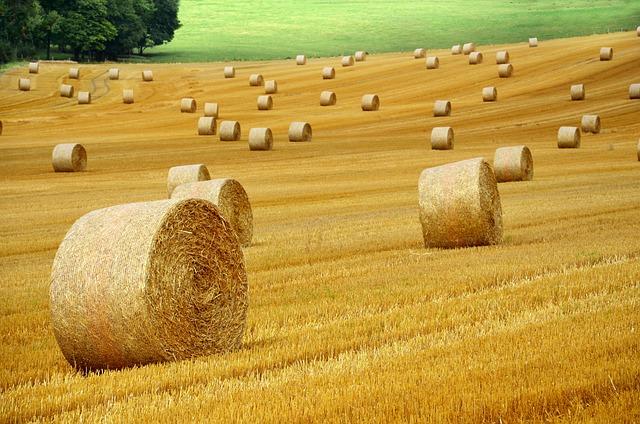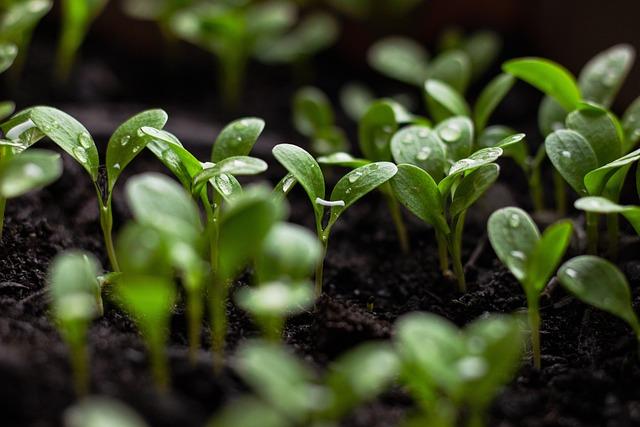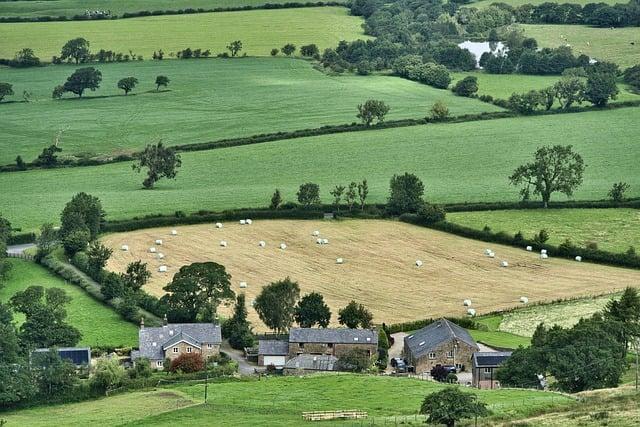Sustainable Farming Practices: Promoting Environmental Stewardship
- Introduction
- Benefits of Sustainable Farming
- Sustainable Farming Techniques
- Challenges in Adopting Sustainable Farming
- The Future of Sustainable Farming
- Conclusion
- FAQs
Introduction
Sustainable farming practices are gaining traction worldwide as farmers and consumers realize the importance of environmentally friendly and socially responsible agriculture. This article explores the benefits, techniques, challenges, and future outlook of sustainable farming.
Benefits of Sustainable Farming

(Image: Pixabay/@ybernardi)
Sustainable farming offers a range of benefits to the environment, farmers, and consumers. By avoiding synthetic pesticides and fertilizers, sustainable farming helps preserve biodiversity, soil health, and water quality. Additionally, organic practices reduce greenhouse gas emissions and contribute to mitigating climate change.
Farmers practicing sustainable agriculture often experience improved soil fertility, increased crop resilience, and reduced dependence on external inputs. These benefits can lead to higher yields and better economic outcomes for farming communities.
Consumers benefit from sustainable farming through access to healthy and nutritious produce, free from harmful chemicals. The transparent and traceable nature of sustainable agricultural practices also builds trust between farmers and consumers, promoting food safety and quality.
Sustainable Farming Techniques

(Image: Pixabay/@EdWhiteImages)
Various techniques are employed in sustainable farming to promote ecological balance and resource efficiency. Practices such as crop rotation, cover cropping, and integrated pest management help maintain soil health and reduce the reliance on chemical inputs.
Agroforestry and permaculture are holistic approaches to farming that mimic natural ecosystems, combining trees, crops, and livestock to create resilient and biodiverse agricultural systems. These techniques not only enhance soil fertility but also provide additional ecosystem services such as carbon sequestration and habitat preservation.
Water conservation practices, such as drip irrigation and rainwater harvesting, are integral to sustainable farming, especially in regions prone to drought and water scarcity. By efficiently managing water resources, farmers can sustainably produce food while minimizing environmental impact.
Challenges in Adopting Sustainable Farming

(Image: Pixabay/@onehundredseventyfive)
Despite the numerous benefits, adopting sustainable farming practices poses several challenges for farmers. Transitioning from conventional farming methods to sustainable practices requires time, training, and financial investments. Farmers may also face resistance from agrochemical industries and institutional barriers that favor conventional agriculture.
Managing pests and diseases without synthetic chemicals can be challenging, particularly in monoculture systems where crop diversity is limited. Additionally, market access and certification requirements for organic products may present hurdles for small-scale farmers seeking to adopt sustainable methods.
Lack of knowledge about sustainable farming techniques and limited access to sustainable inputs can further impede the widespread adoption of environmentally friendly practices. Education, training programs, and supportive policies are essential in overcoming these barriers and promoting sustainable agriculture.
The Future of Sustainable Farming

(Image: Pixabay/@Alexas_Fotos)
The future of agriculture lies in sustainable practices that prioritize ecological health, social equity, and economic viability. As global challenges such as climate change, soil degradation, and food insecurity intensify, the importance of sustainable farming will only increase.
Technological innovations, such as precision agriculture, drones, and biotechnology, are being integrated into sustainable farming systems to enhance productivity and reduce environmental impact. Collaborative efforts among farmers, policymakers, researchers, and consumers are crucial in shaping a more sustainable and resilient food system for future generations.
By prioritizing regenerative practices, agroecological principles, and community empowerment, sustainable farming has the potential to transform the agricultural landscape and create a more sustainable and food-secure world.
Conclusion
Sustainable farming practices are key to promoting environmental stewardship, enhancing farmer livelihoods, and ensuring the availability of safe and nutritious food for all. By adopting sustainable techniques, farmers can mitigate the impacts of climate change, protect biodiversity, and contribute to building a more resilient and sustainable food system.
FAQs
What are some common sustainable farming practices?
Common sustainable farming practices include organic farming, agroforestry, crop rotation, integrated pest management, and water conservation techniques.
How does sustainable farming benefit the environment?
Sustainable farming benefits the environment by reducing chemical inputs, preserving soil health, promoting biodiversity, and mitigating climate change through carbon sequestration and greenhouse gas reduction.
What are the challenges in adopting sustainable farming?
Challenges in adopting sustainable farming include the transition from conventional methods, pest management without synthetic chemicals, market access barriers, and limited knowledge and access to sustainable inputs.

